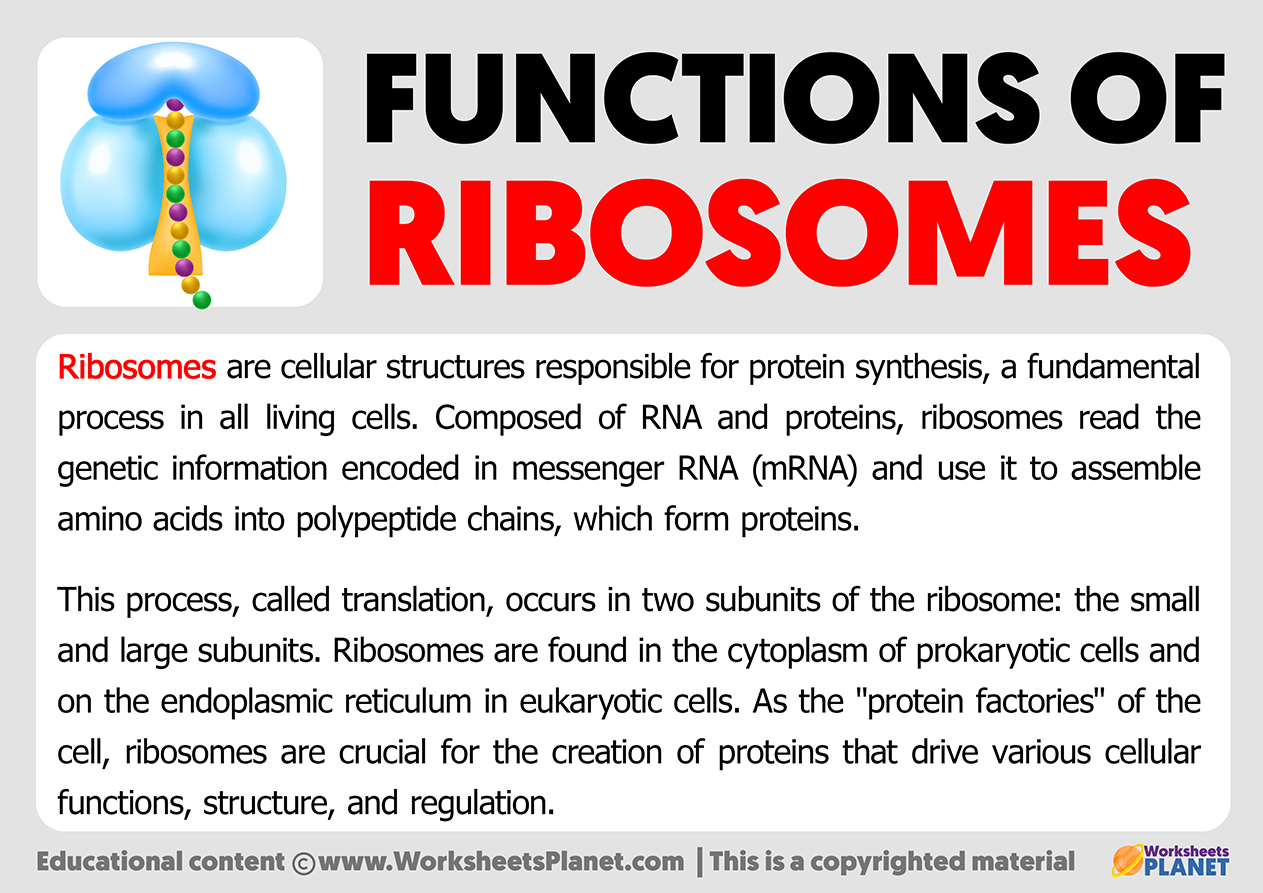Ribosomes are cellular structures responsible for protein synthesis, a fundamental process in all living cells. Composed of RNA and proteins, ribosomes read the genetic information encoded in messenger RNA (mRNA) and use it to assemble amino acids into polypeptide chains, which form proteins.

This process, called translation, occurs in two subunits of the ribosome: the small and large subunits. Ribosomes are found in the cytoplasm of prokaryotic cells and on the endoplasmic reticulum in eukaryotic cells. As the “protein factories” of the cell, ribosomes are crucial for the creation of proteins that drive various cellular functions, structure, and regulation.

